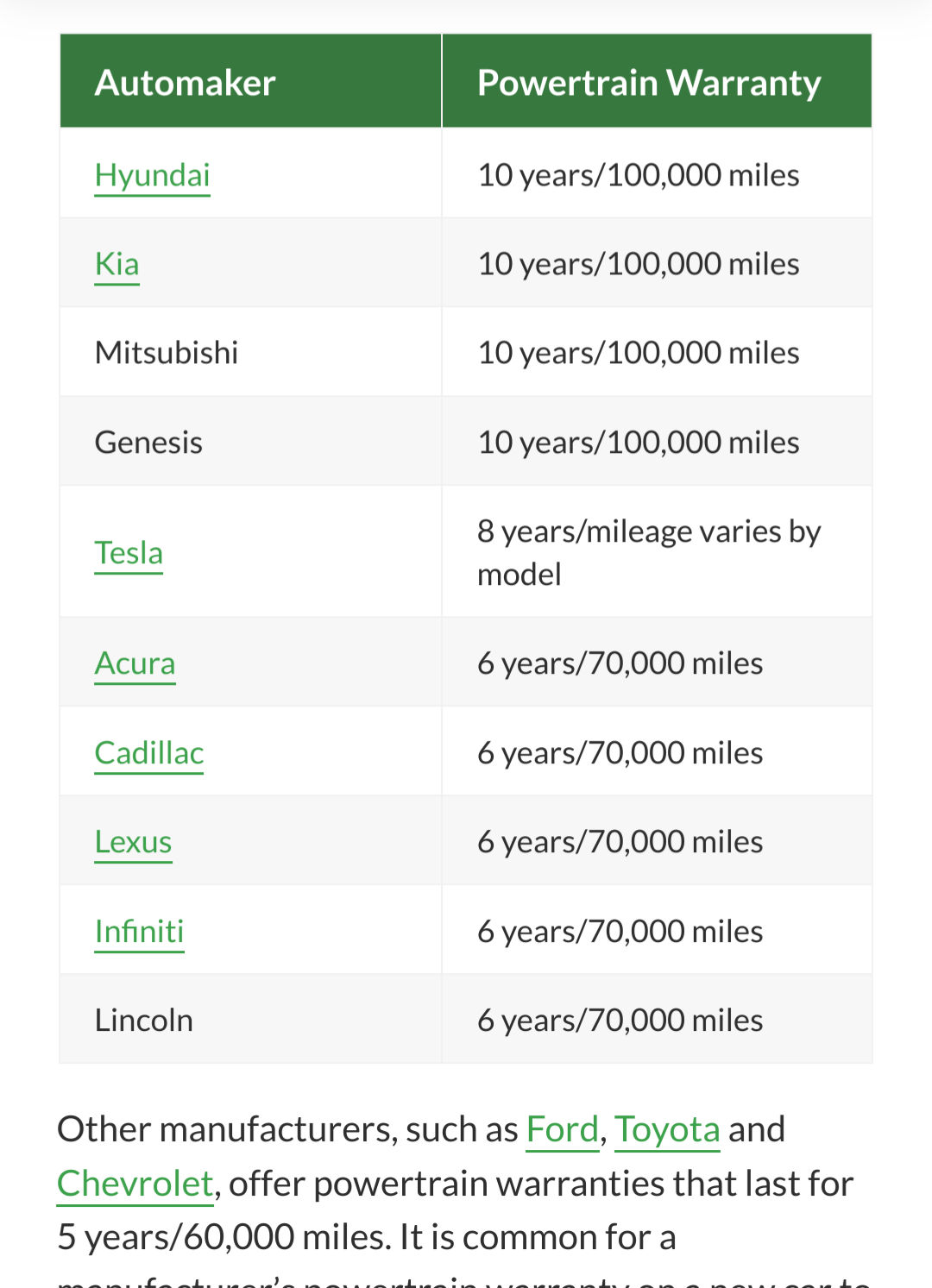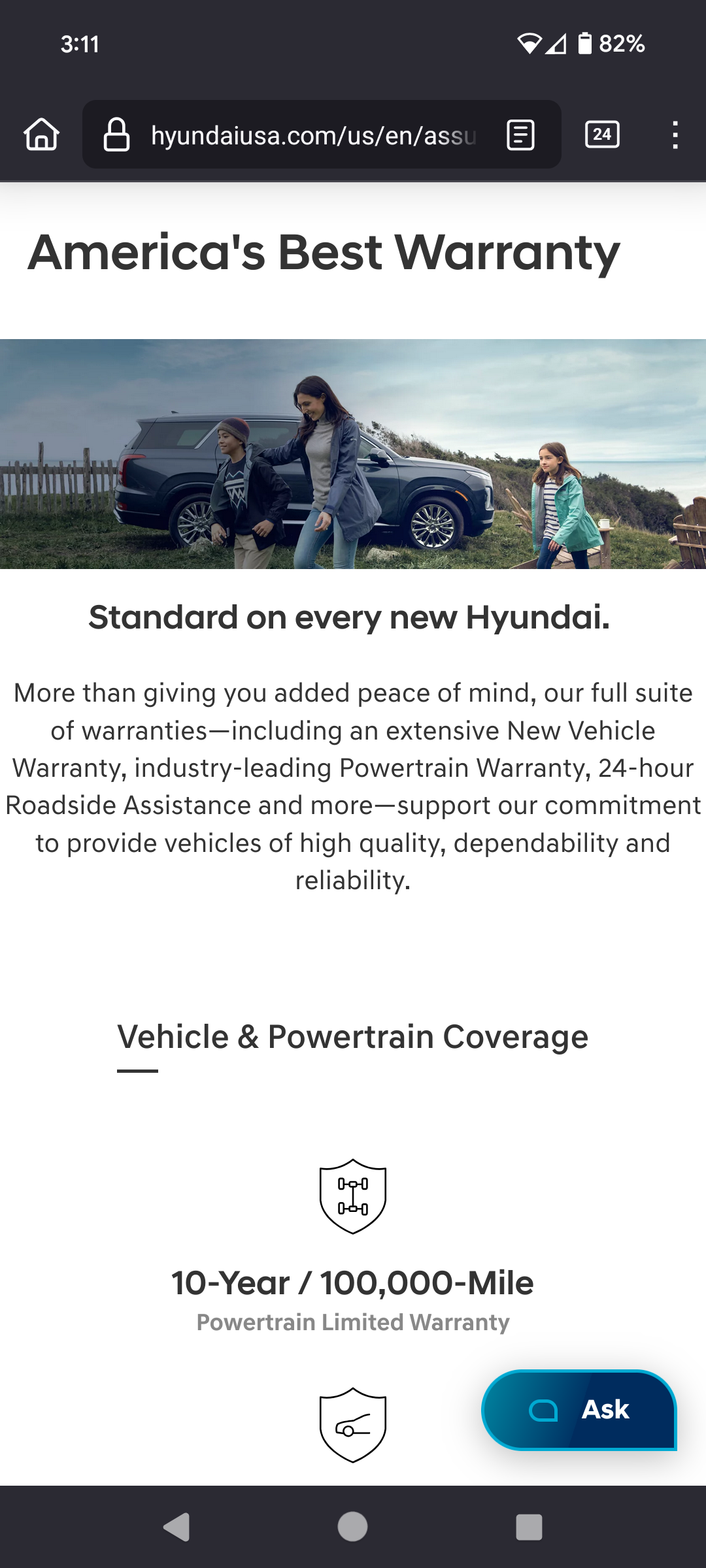Electric Vehicles
A community for the sharing of links, news, and discussion related to Electric Vehicles.
Rules
- No bigotry - including racism, sexism, ableism, casteism, speciesism, homophobia, transphobia, or xenophobia.
- Be respectful, especially when disagreeing. Everyone should feel welcome here.
- No self-promotion
- No irrelevant content. All posts must be relevant and related to plug-in electric vehicles — BEVs or PHEVs.
- No trolling
- Policy, not politics. Submissions and comments about effective policymaking are allowed and encouraged in the community, however conversations and submissions about parties, politicians, and those devolving into general tribalism will be removed.
Still too much for me, but I'm glad we're finally getting down in prices.
It's hardly a surprise. New EVs have been highly priced for the last many years and considered to be luxury or marketed towards the first mover market.
There has only been a tiny used market until now, so obviously availability can only increase which brings down the prices. Demand will tail behind because many first time buyers will be scared to buy used. It'll stabilise somewhere.
It's not a bad thing, unless you want to sell right now and buy new again.
When I switched to EV I did the calculations based on writing off the car entirely after 10 years. It'll probably last longer, but just to get the full depreciation into my calculations of whether it was worth switching at that time. The equations crossed after 6 years, so anything I could sell it for then would be profit in comparison to my car budget.
Anyway, my point is that the current value doesn't change my situation in any way. It was and is still a good deal for me to switch to EV. Gotta get on the train somewhere. Waiting for the market to adjust down to the sticker price on ICE cars is more expensive than worrying about resell value, unless you already know that you need to sell it again shortly.
What are these calculations, like expected cost of electricity vs. cost of fuel and so on, imagining a maximum lifetime of 10 years?
Yes. There are soo many variables that you need a spreadsheet to figure it out. There is no easy way to say that EV is cheaper than ICE unless you know the purchase price, your expected mileage, cost of fuel, depreciation, potential subsidiaries, financing, servicing, repairs, etc. for the time of owning the car. It might not be.
Nobody can know all the variables in advance, so what I did was to calculate the worst possible scenario for the EV against my somewhat more known cost of continuing buying beater cars (which was the cheapest option for me in comparison to buying new ICE cars also, and also on my budget because I knew how much I spent on it previously).
The EVs worst scenario was way ahead of the best scenario ICE, but it was very mileage dependant. I commute 50 km (30 miles) every day and then some. I get my electricity tax free because of government subsidiary and my financing was cheaper because it's an EV (less than 1% interest), but this is obviously very local. ALL variables must be known to some degree, but it's never as simple as comparing the purchase price. While that's the most easily known factor it doesn't actually matter much after 10 years, because all the variables make up for it long before.
Also, charging at home vs. subscribing to a charging service and getting the right electricity subscription are completely different calculations also depending on location, usage and availability. I live in Denmark (Europe) and charging at home with variable price and feedback subsidized commission is absolutely the cheapest option unless you're a traveling salesman putting thousands of kilometres every week.
By doing worst case against a known case I am always pleasantly surprised when we have negative electricity prices, because the actual calculation would break down at that point. My actual costs are continuously better than my expectations, so if my expectations are good enough, well then my actual situation is a lot better.
I can only urge people to gather their data, figure it out and have a look. There will be cases where an ICE car is cheaper, but in my situation, I can't find it at all.
That's really useful to consider, thank you for going into some more details on that.
My god it’s like we’re twins. Exact same thought process.
Wait until solid state batteries start making it to the market 😎
And please, make them swappable. I'm afraid to buy used because the battery is a gamble. If I could just go to the shop and have them pop a new one in in about half an hour, I'd be really interested.
It's not a gamble, just EV haters keeping that myth alive. You don't worry about the replacement engine cost of an ICE, do you?
No, because I know I'll get at least thrive the mileage out of them I typically use them. I have no experience on EVs though.
The fact that the battery is usually the part that has the longest warranty should tell you everything. I have never seen a warranty on an engine longer than 5 years and 100 000 km, but batteries are routinely 10+ years.
Recently in Thailand MG have started to offer lifetime, unlimited mileage warranty for the battery !
The battery wear was an issue for the first EV with bad thermal but more it is not really a problem anymore.
What percentage of capacity does the warranty cover? I had batteries covered under phone plans before and it turns out even a significantly lower capacity counts as "working like normal."
Tesla's covers 70% if I remember correctly

They're still shitboxes but 10 year 100k mile power train coverage is out there.
Is that the default warranty though? My PHEV has a 10-year warranty on the battery, 3 years on the rest by default, I didn't pay for any extra coverage (Chrysler).
 https://www.hyundaiusa.com/us/en/assurance/america-best-warranty
https://www.hyundaiusa.com/us/en/assurance/america-best-warranty
With that said- Do not, under any circumstances, buy a Hyundai.
Good to know, thanks. Next car might have a charging socket
Good news for me I guess.